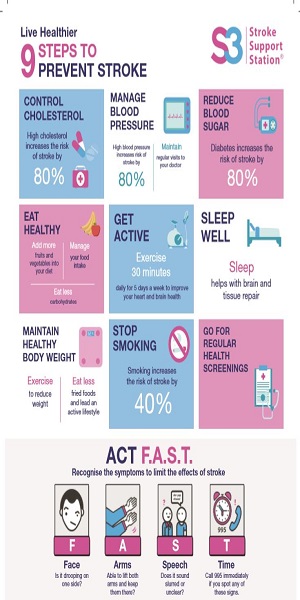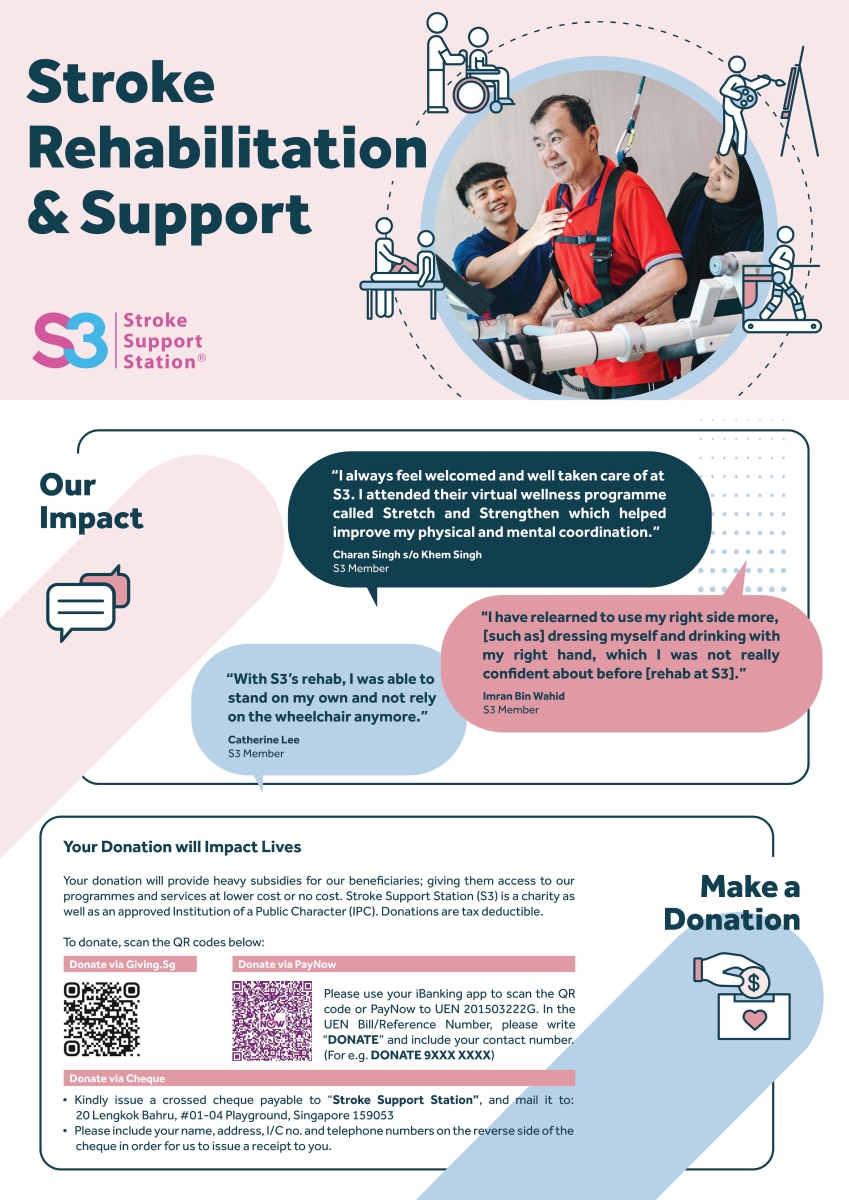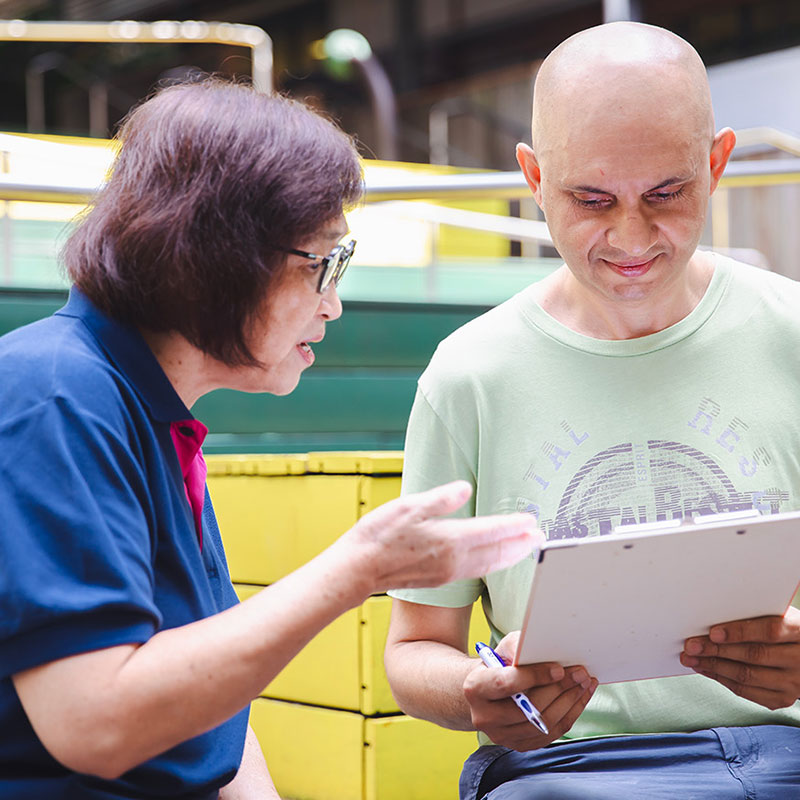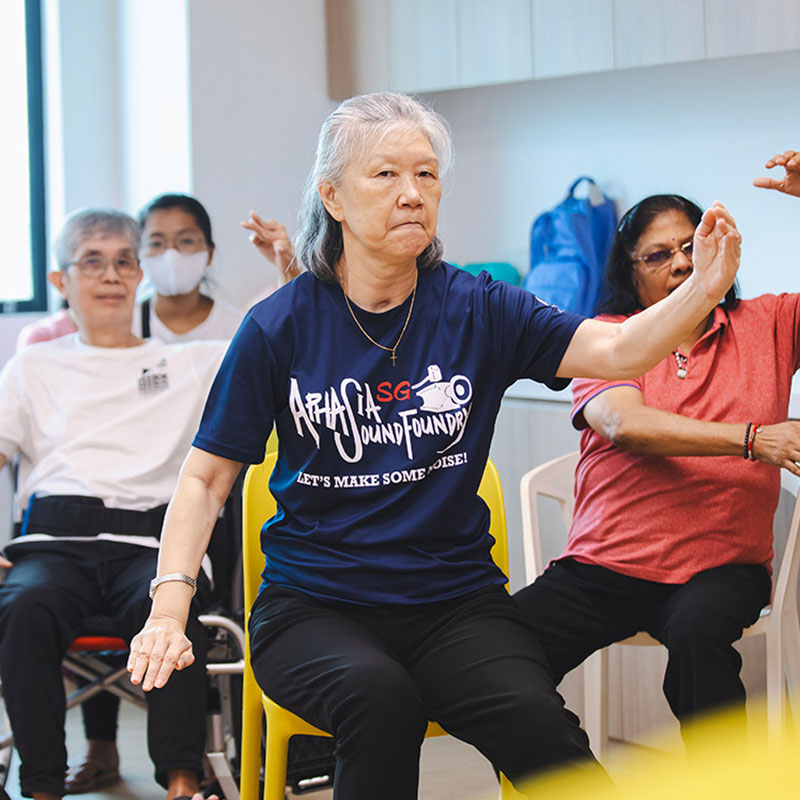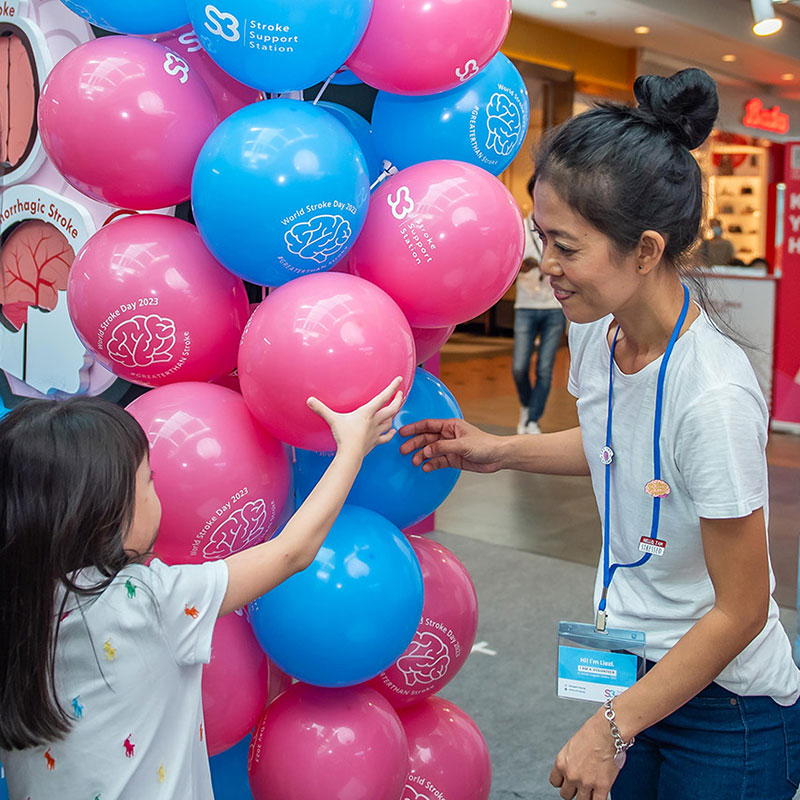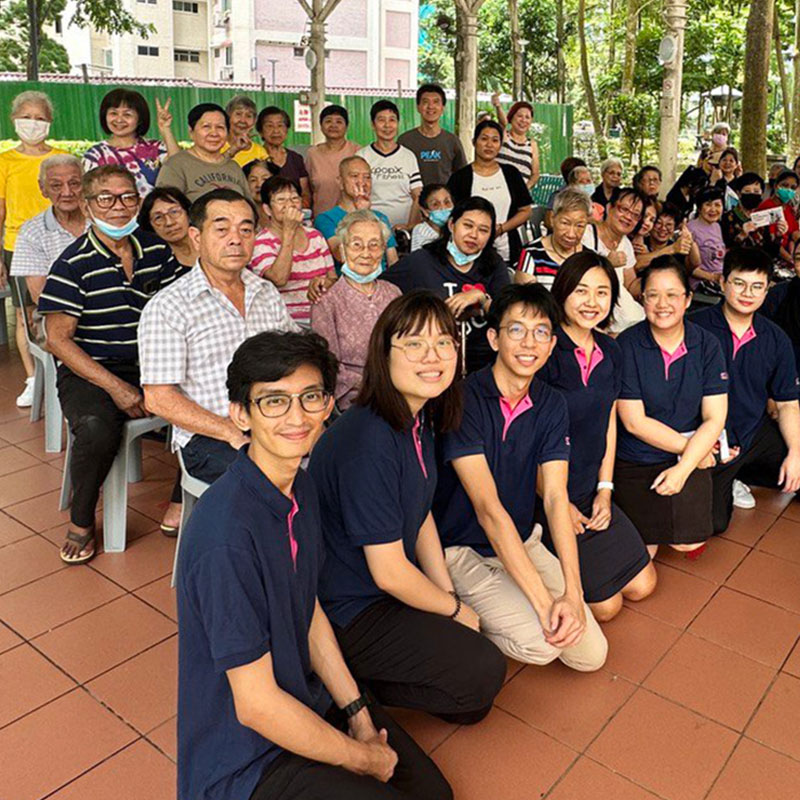The Stroke Journey
There are approximately over 6,000 stroke episodes each year. Being told you or someone close to you has had a stroke can be overwhelming and sometimes devastating, but remember, you are not alone, there is always help available. (Statistic source: National Registry of Diseases Office)
A stroke survivor often travels down the path of various stages in their stroke journey, including:
-
Initial shock
Going from being physically healthy one day to suddenly experiencing new and frightening sensations like numbness, weakness, immobility and the inability to speak coherently, can have a strong psychological and emotional impact on the stroke survivor and their family members.
Overcoming the initial shock is the hardest part and can often take a significant amount of time to come to terms with the fact. -
Denial
When a stroke occurs, the individual often has to give up several aspects of life before a stroke, including the simplest of daily routine. This can very often lead to denying the loss of independence and the need to focus on recovery. -
Roller coaster of emotions
Stress, anxiety, frustration, resentment and depression are a few of many emotional reactions that stroke survivors will exhibit due to the loss of independence and control of motor skills. Such negative emotions can affect the overall well-being of the stroke survivor and impact their road to recovery. -
Unrealistic expectations
What were once simple daily activities have become major challenges for the stroke survivor, yet there is a belief that these challenges can be overcome quickly with an intensive rehabilitation programme. Thus begins the ‘bargaining’ with healthcare providers and family over how the treatment and rehabilitation should be sped up in order to return to their normal way of life. -
Acceptance
This is a stage when stroke survivors have come to terms with their condition and are able to accept the necessary course of recovery and are able to embrace the best methods to cope. -
Regaining control
Stroke survivors can thrive on the positive environment in which they live in; which can ultimately empower them to regain control of their mental and emotional health in order to gain improvement in their physical rehabilitation programme.
Role of the Caregiver
Caregivers and family members play a critical role in helping stroke survivors gain control of their lives as they embark on a journey towards progressive recovery.
Support and care from the people closest to the stroke survivor are often the best way they can recover from stroke. It provides them with a sense of emotional security that helps them to re-build their confidence and sense of independence.
The recovery process is always sped up when someone is at the stroke survivor’s side.
As a caregiver you can:
-
Be the pillar of strength
Give the stroke survivor as much support and assurance as possible. This should be communicated in words and actions. -
Be a good listener
A stroke survivor will be speech impaired and this will prevent the ability to express feeling clearly. It is important to be patient and lend an active listening ear in order to help him find a new meaning in life. -
Be gentle but firm when necessary
Strike a balance between showering affection and enabling the stroke survivor’s recovery. Doing everything for the stroke survivor may slow down their recovery progress. The stroke survivor will need to learn to be as independent as possible. -
Be the link to the world outside of stroke
Restriction of social activities and changes in lifestyles is a frustrating aspect of a stroke survivor’s life. It is important to be their partner and engage them in activities that they enjoy. This helps them regain their confidence in meeting other people, even strangers. -
Accept help when offered
Being the caregiver does not mean that the ownership of the stroke survivor’s recovery falls on you. There is a lending hand available at every stage of the recovery process. [Click here to find out more]
(Source: National Healthcare Group)
Downloads

